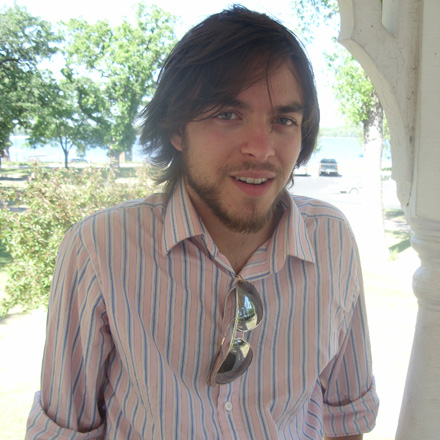 Tweet
Tweet
Featured on Jul 22, 2011
Adrian M Ryan
"Yet what is any ocean but a multitude of drops? – David Mitchell"
Bio:
I often feel as though I've done very little but experienced much. I've been everything from a full-time professional cook to an unemployed novelist to a rails programmer. I was born and raised in rural Alaska, went to an East Coast school, lived in Europe for a time, and never really saw myself moving to NYC until I did, but now I've been spoiled by the city and don't know how I'll ever live anywhere else. I currently run events at General Assembly, which is like an esoteric mash-up of all my previous work experience and then some. It's exciting: I get to do things I love and am good at, and learn more every day. Who could want more?
- Title: Events Director, General Assembly
- Age: 24
- Location: Brooklyn, Crown Heights
- Contact: @AdrianMRyan
To date, what is your favorite event that you’ve attended at General Assembly?
That's a hard one: I have a personal stake in all of our events being great, and on top of that I'm often working behind the scenes on them so it's difficult to judge them as a participant.
That said, the events that get people talking are my favorites. The hackathons, the demo nights, the panels on the ways technology is changing the world around us. There's something wonderful about bringing together a group of people who don't know each other and watching them make new friends and come away with great new ideas and projects to collaborate on.
If you were given the money and were forced to go back to college to study something that you had never studied before, what would it be and why?
A hard science (probably Astrophysics or Evolutionary Biology) paired with creative writing with a healthy smattering of other hard sciences and philosophy with a view to changing the way science education works.
The way we teach science is all wrong. The problem is that it's taught as a purely analytical skill. Science as a process, however, has long been multidisciplinary. Richard Feynman, Kurt Gödel, Albert Einstein, and Carl Sagan are all examples of modern scientists who have understood that history, art, philosophy, and science are all different aspects of understanding the world. At very least, we should teach children the history of scientific thought, building new concepts upon old in the same organic way that humans have through history, and have them learn to apply those conceptual abilities through hands-on experimentation. I'd love to be able to change the way we think about science education in the States, if not around the globe.
That, and write science fiction in my off time.
What preconceived notions did you have about NYC that made you think you’d never live there? How has your mind changed about those notions after living here?
So I went to school in Connecticut and came down to NYC pretty frequently for daytrips or extended weekends. It was always expensive and hectic and crazy fun, but the sort of fun that made me need a vacation from the vacation. Now that I live here, I've quickly found that there's an ebb and flow to the city that you have to work with rather than against. That, and people are much friendlier here than they first seem. I try to keep an easygoing but savvy attitude, a mix of my West and East Coast experiences, and find that a smile and wink are all that's really required to open folks up.